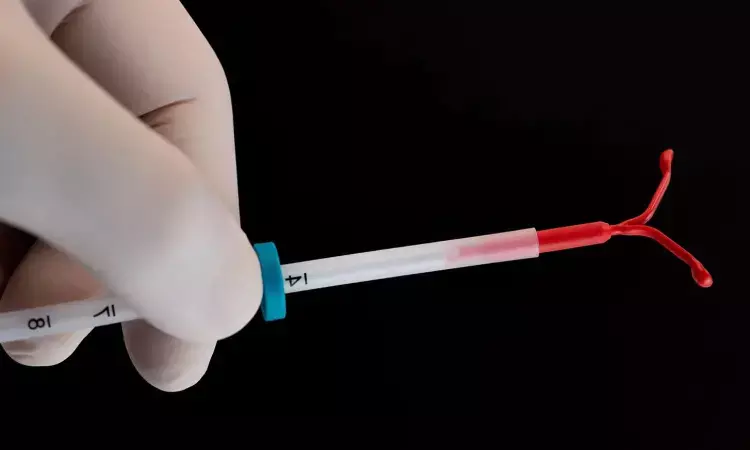- Home
- Medical news & Guidelines
- Anesthesiology
- Cardiology and CTVS
- Critical Care
- Dentistry
- Dermatology
- Diabetes and Endocrinology
- ENT
- Gastroenterology
- Medicine
- Nephrology
- Neurology
- Obstretics-Gynaecology
- Oncology
- Ophthalmology
- Orthopaedics
- Pediatrics-Neonatology
- Psychiatry
- Pulmonology
- Radiology
- Surgery
- Urology
- Laboratory Medicine
- Diet
- Nursing
- Paramedical
- Physiotherapy
- Health news
- Fact Check
- Bone Health Fact Check
- Brain Health Fact Check
- Cancer Related Fact Check
- Child Care Fact Check
- Dental and oral health fact check
- Diabetes and metabolic health fact check
- Diet and Nutrition Fact Check
- Eye and ENT Care Fact Check
- Fitness fact check
- Gut health fact check
- Heart health fact check
- Kidney health fact check
- Medical education fact check
- Men's health fact check
- Respiratory fact check
- Skin and hair care fact check
- Vaccine and Immunization fact check
- Women's health fact check
- AYUSH
- State News
- Andaman and Nicobar Islands
- Andhra Pradesh
- Arunachal Pradesh
- Assam
- Bihar
- Chandigarh
- Chattisgarh
- Dadra and Nagar Haveli
- Daman and Diu
- Delhi
- Goa
- Gujarat
- Haryana
- Himachal Pradesh
- Jammu & Kashmir
- Jharkhand
- Karnataka
- Kerala
- Ladakh
- Lakshadweep
- Madhya Pradesh
- Maharashtra
- Manipur
- Meghalaya
- Mizoram
- Nagaland
- Odisha
- Puducherry
- Punjab
- Rajasthan
- Sikkim
- Tamil Nadu
- Telangana
- Tripura
- Uttar Pradesh
- Uttrakhand
- West Bengal
- Medical Education
- Industry
Mepivacaine can reduce pain during IUD placement in Nulliparous Women, reveals research

A groundbreaking study revealed that intrauterine mepivacaine can significantly reduce pain during intrauterine device placement in nulliparous women who are at high risk of unintended pregnancy as per a trial that was published in the American Journal of Obstetrics & Gynecology.
Providing access to successful and effective contraceptive methods is necessary for comprehensive family planning among women in the reproductive age group. Long-acting reversible contraception (LARC), such as intrauterine devices (IUDs) and subdermal implants are the most effective reversible contraceptive options available and recommended as per international guidelines. However, fear of pain and discomfort during the IUD placement is a major barrier to the uptake of IUDs among nulliparous women. Hence, researchers conducted a trial to assess whether the instillation of intrauterine mepivacaine before IUD placement alleviates pain more effectively than a placebo.
a multicenter, double-blind, randomized, placebo-controlled trial was carried out involving nulliparous women who were ready for IUD placement. A hydrosonography catheter was used for the intrauterine instillation of 10 mL of 20 mg/mL mepivacaine or 0.9 mg/mL sodium chloride and administrated 2 minutes before IUD placement. A 100 mm visual analog scale (VAS) was used to assess pain at prespecified time points. The primary outcome was to assess the difference in VAS pain scores between the intervention group and the placebo group during IUD placement. Secondary outcomes included VAS pain scores at instillation and 10 minutes after placement, tolerability of the placement pain, as well as acceptability of the analgesia method.
Findings:
About 151 participants were enrolled, with 76 randomized to the mepivacaine group and 75 to the placebo group.
The mean VAS pain score during IUD placement showed a difference of 13.3 mm.
The mepivacaine group had a mean of 53.9 mm, while the placebo group had a mean of 67.2 mm suggesting that mepivacaine was effective in reducing the pain.
A statistically significant difference between the pain scores was seen after adjusting for each individual provider’s impact.
A greater proportion of women in the intervention group reported tolerable pain during placement with 70/75 participants (93.3%) compared to 53/66 participants (80.3%) in the placebo group.
Thus, the study concluded that intrauterine instillation of mepivacaine results in a statistically significant reduction in pain scores among nulliparous women during IUD placement. The researchers concluded that there was a reported high acceptance of the IUD after mepivacaine due to tolerable pain levels reported by women.
Thus, intrauterine mepivacaine installation has better clinical relevance during IUD placement in reducing pain in nulliparous women who are at high risk of unintended pregnancy.
BDS, MDS
Dr.Niharika Harsha B (BDS,MDS) completed her BDS from Govt Dental College, Hyderabad and MDS from Dr.NTR University of health sciences(Now Kaloji Rao University). She has 4 years of private dental practice and worked for 2 years as Consultant Oral Radiologist at a Dental Imaging Centre in Hyderabad. She worked as Research Assistant and scientific writer in the development of Oral Anti cancer screening device with her seniors. She has a deep intriguing wish in writing highly engaging, captivating and informative medical content for a wider audience. She can be contacted at editorial@medicaldialogues.in.
Dr Kamal Kant Kohli-MBBS, DTCD- a chest specialist with more than 30 years of practice and a flair for writing clinical articles, Dr Kamal Kant Kohli joined Medical Dialogues as a Chief Editor of Medical News. Besides writing articles, as an editor, he proofreads and verifies all the medical content published on Medical Dialogues including those coming from journals, studies,medical conferences,guidelines etc. Email: drkohli@medicaldialogues.in. Contact no. 011-43720751


